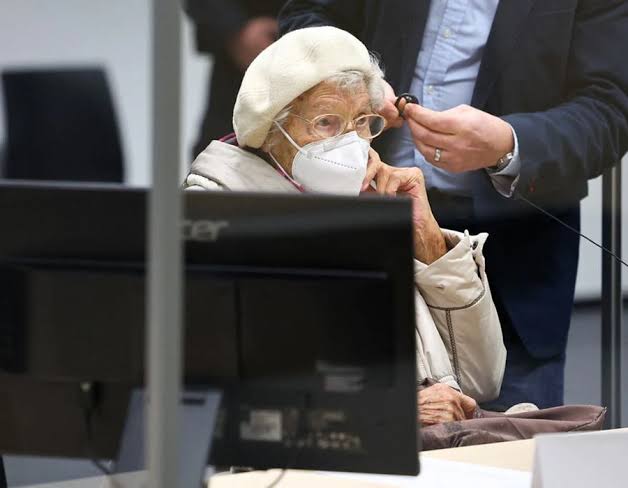German court convicts 97-year-old in one of last Holocaust trials

The Oswiecim railway station in Poland, where the former German Nazi concentration and extermination camp Auschwitz and Auschwitz II-Birkenau are located.
A court on Tuesday convicted a 97-year-old former Nazi camp secretary of complicity in the murder of more than 10,000 people in what could be Germany’s last Holocaust trial.
Presiding judge Dominik Gross handed a two-year suspended sentence to Irmgard Furchner for her role in what prosecutors called the “cruel and malicious murder” of prisoners at the Stutthof camp in occupied Poland.
Furchner sat in a wheelchair in the courtroom, wearing a white cap and a medical mask as Gross found her guilty of thousands of counts of accessory to murder.
She was the first woman in decades to be tried in Germany for Nazi-era crimes.
Gross noted that justice had come “truly very late” in the case, and only because “the defendant has been lucky to have a particularly long life.”
Furchner had expressed regret as the trial drew to a close in December.
“I’m sorry about everything that happened,” she told the regional court in the northern town of Itzehoe.
Gross lamented that she had not given a fuller account of her time at Stutthof.
Gross found that “nothing that happened at Stutthof was kept from her” and that she was aware of the “extremely bad conditions for the prisoners.”
“Near to the prisoners, the stench of corpses was everywhere,” he said, calling it “unimaginable that the accused didn’t notice.”
Furchner had tried to abscond as the proceedings were set to begin in September 2021, fleeing the retirement home where she lives.
She managed to evade police for several hours before being apprehended in the nearby city of Hamburg.
The defendant was a teenager when she committed her crimes and was therefore tried in a juvenile court.
An estimated 65,000 people died at the camp near today’s Gdansk, including “Jewish prisoners, Polish partisans and Soviet Russian prisoners of war,” prosecutors said.
Between June 1943 and April 1945, Furchner took the dictation and handled the correspondence of camp commander Paul Werner Hoppe while her husband was a fellow SS officer at the camp.




